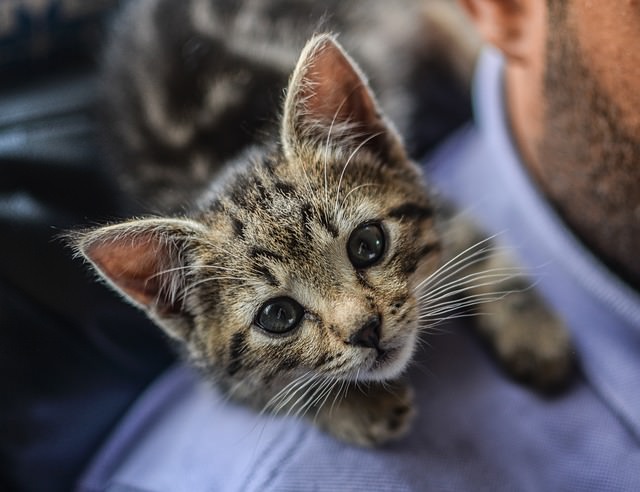Summer is kitten season, and the influx of unwanted and unexpected litters leaves animal shelters overcrowded and incapable of saving every furry feline that comes through their door. It’s not uncommon to find seemingly abandoned litters or individual kittens hiding out in the area near your home, and every animal lover’s first instinct is to try and help. But before you jump to the rescue, it’s important to first think through what you’re about to do. Here are a few tips to help you through the process.
1. Don’t Act Too Quickly

The first thing to do when you stumble upon stray kittens is to wait and watch. The mother may be out hunting for food or hiding from you. Separating young kittens from their mother will do more harm than good. Stand several feet away from the kittens and wait to see if mom shows up. If you’ve waited several hours and there’s no sign of her, it’s safe to assume she’s not coming back. But if she does show up, you now have a litter of kittens and a nursing mother cat to consider.
2. Determine If Mom Is Stray Or Feral
In the event that the mama cat returns to her babies, it’s your job to determine whether she’s a stray who relies on humans for survival or a feral that wants nothing to do with you. Discerning the difference shouldn’t be hard. If she lets you approach her or is timidly interested in your presence, she’s a stray. A feral will stay far away, despite all your cooing and the temptation of food.
Strays can be rescued and considered for adoption, but your best option with a feral is to contact a group that does TNR, or Trap, Neuter, Release. The organization can trap the feral mama, spay her, and release her to her kittens. If the kittens are too young to survive without their mother’s milk, it’s best to leave them where they are. You can check up on them and provide food, but for now, their mother is their best chance at survival.
3. Assess The Situation
If you’ve determined the mother is a stray who will accept your help or you find that the kittens are completely orphaned, you can move forward with your rescue efforts. But before you scoop them up, consider other factors including their age and health. Weaning usually starts around four weeks old, and young kittens unable to eat solid food will need to be bottle fed if Mom’s no longer around. Newborn kittens need to be fed every few hours, and it’s a commitment that shouldn’t be taken lightly. A visit to the vet should always be your first action, especially if they’re weak, refuse to eat, or look generally unwell.
4. Give Them The Best Care
Once you’ve made the decision to take in stray kittens, it’s your responsibility to do what’s best for them. If you don’t have the time, effort, and funds to give them the care they need, find someone else who does. Animal shelters are a possibility, but remember they’re already busy with overfilled kennels, and many shelters will automatically euthanize kittens under two pounds. You should also try calling rescues, but they’re often full, too. If you decide to help them yourself, give them food, water, and treat them for fleas. When they’re old enough, they will also need to be spayed or neutered to prevent more helpless litters just like them.
5. Find A Loving Home
If you can’t keep your rescues, reach out to friends, neighbors, and family. Get online and post to social media for a wider reach. There are even Facebook groups you can join for the exact purpose of finding rescued animals homes. Remember, you can do your own version of screening candidates, and asking for vet or professional references is a good place to start.
When looking for possible adopters, it’s customary to ask for a reasonable rehoming fee to ensure the person is serious about the kitten’s care. Too often, free kittens end up in the hands of someone who means them harm or doesn’t take pet ownership seriously. You can put the money toward the costs of spaying/neutering or donate it directly to a shelter in need.
Rescuing stray kittens is never as simple as it seems, but they’re living creatures that deserve your help and compassion. By assessing the situation and providing the care they need, you can successfully save their lives and give them loving, safe homes.




